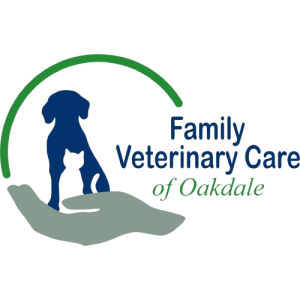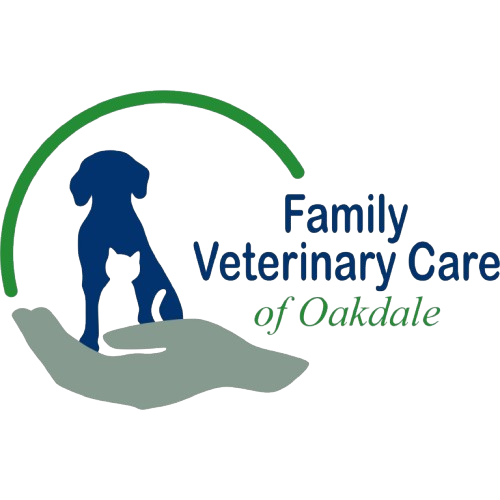Embarking on your career as a veterinarian is an exciting milestone. But, after years of rigorous study and practical training, starting your first job can be thrilling and daunting. Adequate preparation will help you transition smoothly from student to professional. To help you nail your first veterinary job, our Family Veterinary Care of Oakdale team shares the following comprehensive guide with job-landing tips.
1: Understand the job market
Before applying for positions, learn the ins and outs of the veterinary job market. Research various practice types, such as small animal clinics, large animal hospitals, specialty practices, and mobile clinics. Each offers a different work environment and patient interaction, from farms and livestock to cutting-edge facilities and exotic pets.
2: Craft a strong resume and cover letter
Your resume and cover letter are your first chance to positively impress potential employers. Highlight your education, relevant experience, clinical rotations, and any special skills or certifications. On your resume, include clinical experiences, externships, volunteer work, and special projects. For your cover letter, craft a personalized introduction that shows your enthusiasm for the position, the practice, and its mission.
3: Prepare for interviews
Interviews can be nerve-wracking, but preparation is key. Research common veterinary interview questions and practice your answers. Focus on your clinical knowledge, problem-solving abilities, and communication skills. Be ready to discuss case studies, your approach to client communication, and your handling of stressful situations. Practice with classmates and mentors, or simulate interview scenarios online, so you will be confident in your answers.
4: Gain practical experience
While academic knowledge is vital, hands-on experience is equally important. Engage in internships, externships, and volunteer opportunities during your studies. These experiences not only enhance your skills but also build your professional network. Opportunities include:
- Internships — Internships provide structured, supervised experiences in various settings.
- Externships — Externships offer shorter, more intensive training periods, often in specialized fields.
- Volunteering — Volunteering in animal shelters or underdeveloped countries helps develop empathy and a deeper understanding of animal care.
5: Understand professional etiquette
Transitioning from student to professional involves more than clinical skills. Professional etiquette plays a significant role in your colleagues’ and clients’ perceptions. Focus on these key areas:
- Communication skills — Practice clear, compassionate communication with clients and team members.
- Dress code — Adhere to your workplace’s dress code to present yourself professionally.
- Punctuality — Always be on time for your shifts and appointments.
6: Continue your education and professional development
Veterinary medicine is a constantly evolving field. Commit to lifelong learning to stay current with the latest advancements and best practices. Consider the following:
- CE courses — Participate in online and in-person continuing education courses and workshops.
- Professional organizations — Join organizations like the American Veterinary Medical Association (AVMA) for resources and networking opportunities.
- Certifications — Consider pursuing additional certifications in areas of special interest.
7: Build relationships with mentors
Mentorship is invaluable for new veterinarians. Experienced mentors can provide guidance, support, and advice as you navigate your early career. Make the most of mentorship by:
- Finding the right mentor — Look for mentors during your clinical rotations or through professional organizations.
- Maintaining relationships — Stay in regular contact, seek feedback, and be open to learning.
8: Prioritize a work-life balance
The veterinary profession can be demanding, so a positive work-life balance is essential to prevent burnout. Develop strategies to manage stress and maintain a healthy balance between your professional and personal life. Strategies include:
- Time management — Prioritize tasks and manage your time effectively.
- Self-care — Engage in activities that promote physical and mental well-being.
- Support systems — Lean on friends, family, and colleagues for support.
9: Plan your finances
Entering the workforce brings new financial responsibilities, especially as your first student loan payment comes due. Understanding how to manage your finances can reduce stress and ensure long-term stability. Important steps include:
- Budgeting — Create a budget to manage your income and expenses.
- Loan repayment — Develop a plan for repaying student loans.
- Savings and investments — Start saving early and consider investment options for the future.
10: Set career goals
Finally, setting clear career goals will help you stay focused and motivated. Reflect on what you hope to achieve in your career and create a roadmap for those milestones. Create:
- Short-term goals — Identify immediate objectives, such as mastering specific skills or gaining experience in a particular area.
- Long-term goals — Consider where you see yourself in five to 10 years and the steps needed to get there.
Preparing for your first job as a veterinarian involves a blend of practical experience, professional development, and personal growth, and you will be well-equipped with our Family Veterinary Care of Oakdale team’s strategies. If you’re on the hunt for a rewarding first job rich in mentorship and growth opportunities, check out our open positions.










Leave A Comment